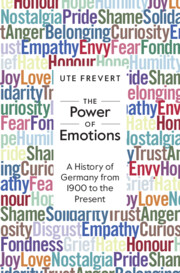Book contents
Fondness
Published online by Cambridge University Press: 14 July 2023
Summary
Were Angela Merkel and Emmanuel Macron as fond of each other as their body language suggested when they remembered together the armistice of World War I in 2018? And what was the message conveyed by the ‘brotherly kiss’ exchanged by Erich Honecker and Leonid Brezhnev on the occasion of the thirtieth anniversary of the GDR? Politicians undoubtedly like some colleagues more than others. Yet it is questionable whether personal feelings have any effect on political decision-making. This chapter examines what role national interests play in the realm of political friendship, in the Italo-German brotherhood in arms during National Socialism and Fascism or the much-vaunted German-Soviet Friendship imposed from above. When Konrad Adenauer and Charles de Gaulle pursued those interests and negotiated the Franco-German Elysée Treaty of Friendship in 1963, there was initially no sign of any affection between these two very different men. That evolved in the course of the talks and made the signing of the document much easier. Thanks to the treaty, the citizens of the formerly hostile states then had the chance to get to know one another better and build friendships through youth exchanges and twin-town programmes.
- Type
- Chapter
- Information
- The Power of EmotionsA History of Germany from 1900 to the Present, pp. 140 - 158Publisher: Cambridge University PressPrint publication year: 2023

